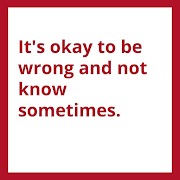Improving your emotional vocabulary can be a valuable tool for understanding and expressing your feelings.
When you have a wide range of words to describe your emotions, you can better communicate with others about how you're feeling and understand your own emotions more deeply.
Here are some benefits of improving your emotional vocabulary:
Improved communication: When you have a rich emotional vocabulary, you can better express how you feel to others. This can help you form deeper, more meaningful relationships and be more honest and open with the people around you.
Increased emotional intelligence: Having a wide range of words to describe your emotions can also help you increase your emotional intelligence. This means you'll be more self-aware, better able to identify and understand your own emotions, and more empathetic towards others.
Enhanced self-expression: Improving your emotional vocabulary can also help you express yourself more effectively through writing or art. When you have the words to describe your emotions, you can create more nuanced and powerful expressions of your feelings.
A greater understanding of others: When you can understand and identify the emotions of others, you can better understand their perspective and connect with them on a deeper level. This can help you build stronger relationships and be more compassionate towards others.
Here are 15 uncommon words for emotions and their meanings:
- Eudaimonia - A sense of contentment and fulfilment, often associated with living a good and meaningful life.
- Sonder - The realization that each passerby has a life as complex as one's own.
- Ennui - A boredom or weariness, often accompanied by a lack of motivation.
- Anomie - A feeling of disconnection or lack of purpose, often caused by a lack of social norms or values.
- Hiraeth - A longing for a place or time that no longer exists.
- Sehnsucht - A deep, yearning desire for something that cannot be obtained.
- Weltschmerz - A feeling of sadness or disillusionment caused by the gap between one's idealized view of the world and the reality of it.
- Melancholia - A deep sadness or depression, often characterized by a feeling of hopelessness.
- Numinous - A sense of awe or mystery, often associated with spiritual experiences.
- Sonder - The realization that each passerby has a life as complex as one's own.
- Languor - A feeling of listlessness or lethargy, often accompanied by a lack of energy or motivation.
- Wistfulness - A feeling of longing or nostalgia for something that is lost or unattainable.
- Enrapture - A state of being wholly absorbed or fascinated by something.
- Lassitude - A feeling of tiredness or lack of energy.
- Desuetude - A state of disuse or inactivity.
Improving your emotional vocabulary can take time and effort, but it can be a rewarding and enriching process.
By learning new words and understanding their meanings, you can gain a deeper understanding of your own emotions and those of others.
This can help you communicate more effectively, increase your emotional intelligence, and build stronger, more meaningful relationships.
Article generated by ChatGPT. Picture by Lensa AI.




0 Comments